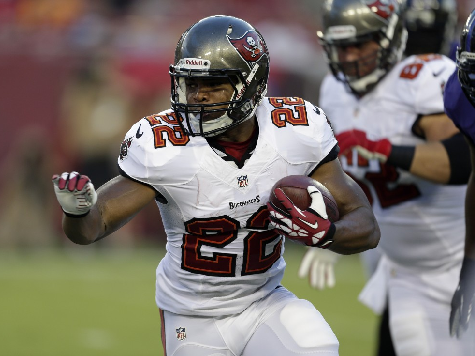As professional football players continue to look for ways to enhance athletic performance, vegan diets don’t seem to be making the cut.
Houston Texans’ sensational running back Arian Foster, who has a career 45 touchdowns and over 5,000 yards rushing, announced on twitter before the 2012 season began that he was “officially a vegan now. We’ll see how far this goes.”
Not very far, as it happens. Forster proceeded to lead the NFL in rushing, touchdowns, and number of carries during the 2012 season, becoming the poster boy for herbivores; but he admitted that by November he had given up the all-plant diet and was eating poultry. And for good reason. He told the Houston Chronicle, “I just wanted a piece of chicken. It wasn’t like temptation. I felt like I could use one.”
Significantly, the rankling on Forster’s Twitter account after his announcement to give up meat really tells the story of why it is difficult to remain a vegetarian in today’s sports culture, especially among professional football players. “Now that Arian Foster is a vegan, I refuse to consider having him on my fantasy team in the future #hippies,” tweeted one disenchanted fan. “$43.5 million [Foster’s five-year contract] says you’ll be eating meat by preseason,” tweeted another. This was followed by comments like this, after he went back to eating meat: “Arian Foster was vegan for like a month then he figured out he’s playing a sport where you can die if you don’t eat 8 steaks a week.”
Team dietician Roberta Anding acknowledges that Forster is always looking for an edge, and food is one area where one can make a difference. “But the volume of food you have to eat as a vegan is pretty large. If you need 5,000 calories a day, that’s a lot of plants,” she explained.
Other dietitians believe that there are benefits to vegetable-based diets, and that a lot of plant-based proteins are showing up in more and more professional football cafeterias. The Texans now have added black-bean burgers, quinoa, and lentils to their standard menu, alongside the usual beef burgers, fries, and eggs. “Players really like those black-bean burgers with salsa or guacamole,” she says.
Nevertheless, it is still an uphill battle if the NFL is really going to consist of players that are strictly vegan or vegetarians. Bears fullback Tony Fiammetta was able to sustain a vegan diet for about nine months before he cried uncle: “I just had cravings for meat, and I tried to fight them for so long, it didn’t make sense to fight them anymore,” Fiammetta says. “I felt good when I was on the diet, but it just became too much to keep it up.”
Detroit running back Montell Owens went vegetarian for two years before he included some meat in his diet and claims that the strict vegetable diet actually helped him lower cholesterol and speed up recovery time from soreness and injuries.
Yet, the fullback admits that, “As an athlete, it’s extremely hard in America to be vegetarian or vegan and do the amount of traveling we do, be in some of the environments we’re in, and make convenient vegetarian and vegan choices. When I was vegan, if I went to a wedding and they didn’t have a vegetarian option, I wasn’t going to eat–I was going to starve. Now I’ll have chicken or fish, but I won’t starve.”

COMMENTS
Please let us know if you're having issues with commenting.